Iran Was Aware of the Zionist Regime's Attack
TEHRAN (Defapress) - Brigadier General Bahman Kargar, head of the Foundation for the Preservation and Publication of Sacred Defense and Resistance Works and Values, appeared on the special television program "Monavar," produced by Defapress on the occasion of the 45th anniversary of the Sacred Defense and the 12-day imposed war. Quoting the statements of Imam Khamenei that "the Sacred Defense holds the right to life for this country, and if it were not for the Sacred Defense, we would not be able to breathe," he stated: The Supreme Leader of the Islamic Revolution considers the Sacred Defense as oxygen for Iranian society; because the Sacred Defense guaranteed the Islamic Revolution, and the document of the Islamic Revolution was registered in the Sacred Defense. Therefore, the Sacred Defense has a great right over our country and nation.
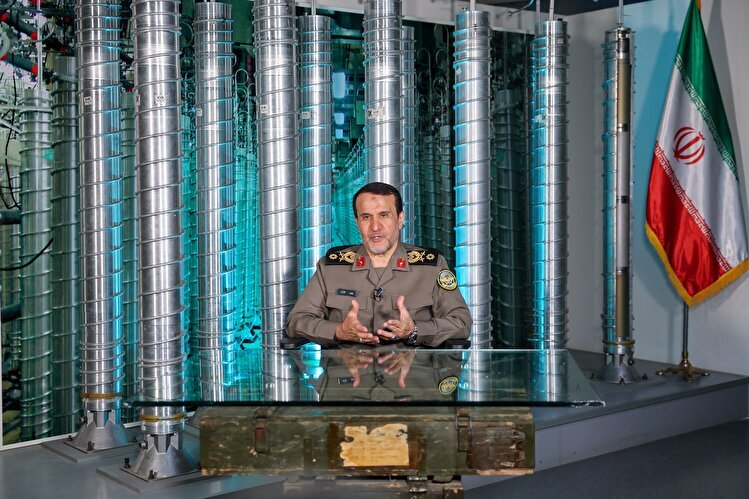
People still feel ashamed of treaties like Turkmenchay
Brigadier General Kargar emphasized that the Iranian nation felt proud of themselves during the Sacred Defense, saying: "At least in the last 200 years (until the Sacred Defense), in every war we entered, we both paid costs and lost our honor; people still feel ashamed when they see the treaties of Turkmenchay, Golestan, and Akhal, and their effects remain in people's lives."
He said: "In World War I, out of a population of 20 million in Iran, 10 million people were killed, and people died from the great famine and starvation; to the extent that Tehran's population of 500,000 was reduced to 250,000."
The head of the Foundation for the Preservation and Publication of Sacred Defense and Resistance Works and Values added: "Reza Shah, who was the so-called Commander-in-Chief during World War II, fled the country, and the nation fell into the hands of foreigners. But in the Sacred Defense, Imam Khomeini (may God's mercy be upon him) assumed the command of the armed forces and, with his strategies, managed to compensate for the initial blows of the war and bring victory to the country."
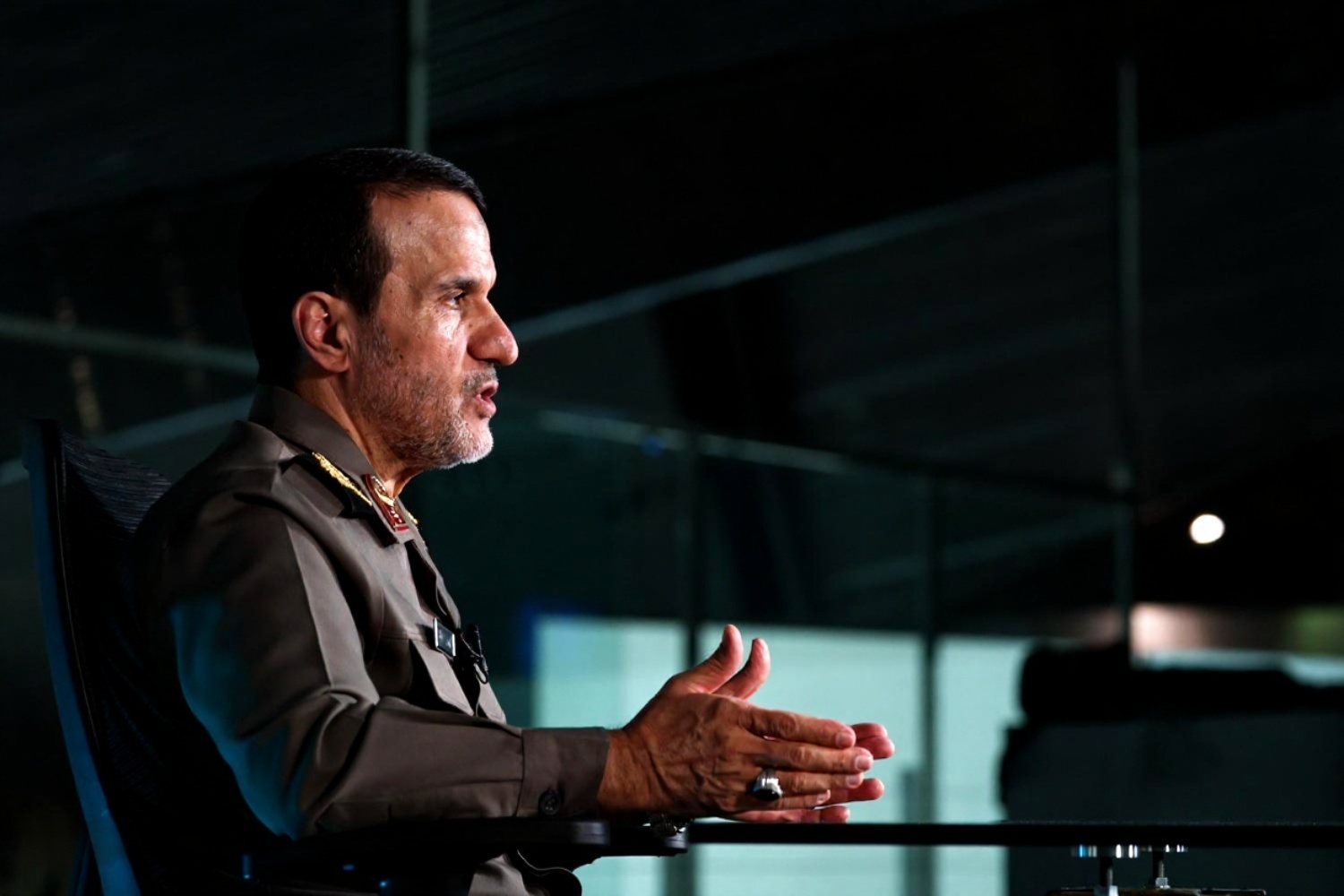
The achievements of the Sacred Defense are tangible in society
Brigadier General Kargar, referring to the experience of the Iranian nation in the Sacred Defense, continued: "The achievements of the Sacred Defense are evident in society; during the Sacred Defense, we were importing barbed wire, but today we produce and even export the most advanced missiles in our country, and in other fields such as medicine, art, etc., we have achieved remarkable accomplishments."
Emphasizing that not even a single span of the country's soil fell into the hands of the enemy during the eight-year Sacred Defense, he said: "Martyr Lieutenant General Gholamali Rashid said, 'To confirm that we said we had not given up a span of land, we told the Armed Forces Geographic Organization to calculate, and they announced that indeed, not even a single span of Iranian soil was placed at the disposal of the Ba'athist regime.'"
The head of the Central Headquarters of Rahian Noor considered the Resistance Front to be among other achievements of the Sacred Defense and added: "Martyr Soleimani and Martyr Hamadani emphasized, 'If it were not for the Sacred Defense, we would not have succeeded in the matter of resistance either.'"
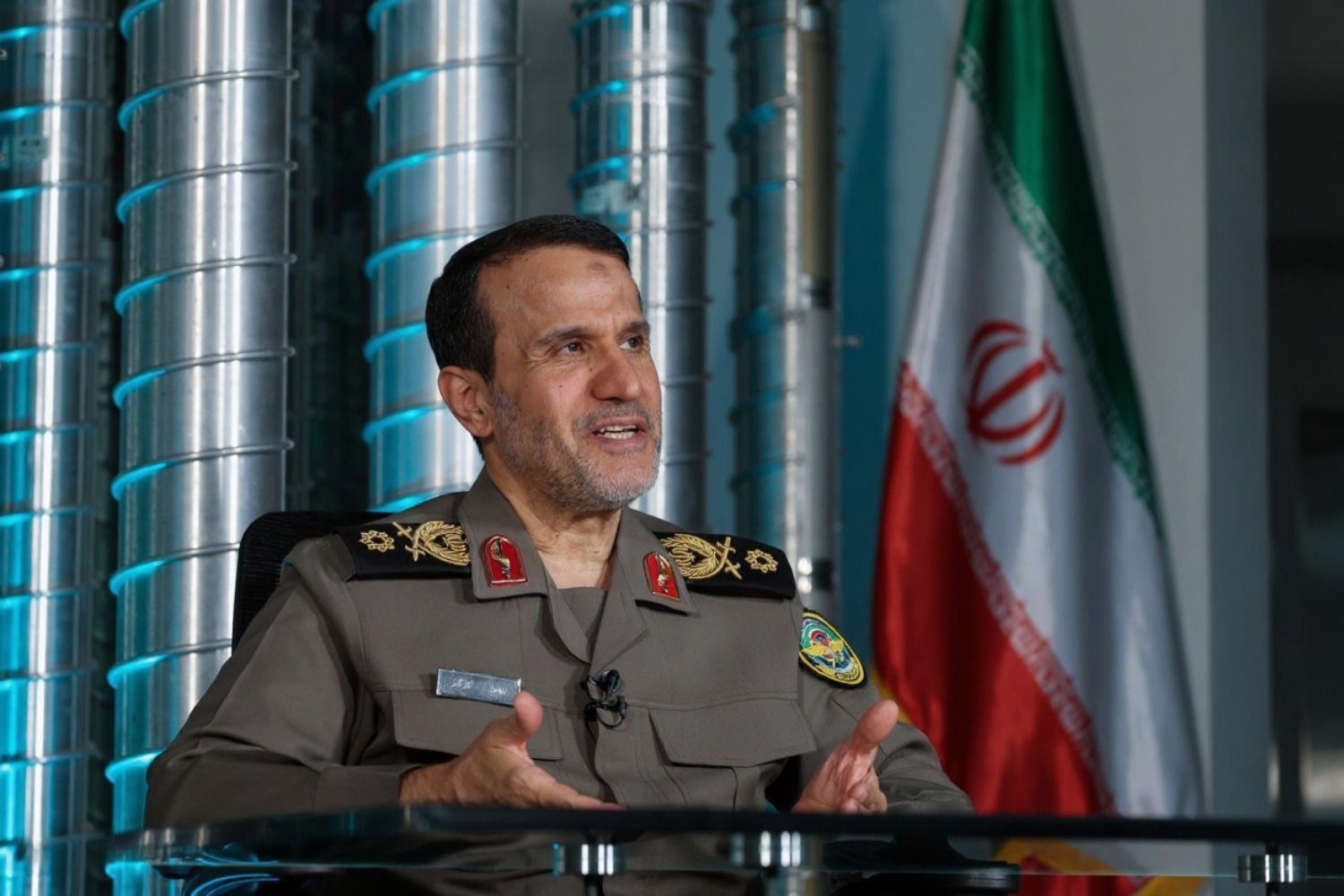
The real victory of the Sacred Defense was the beloved Iranian nation
He said: "During the Sacred Defense, the world accepted the Islamic Republic as a solid system; of course, the role of leadership and the people in this victory is undeniable. In reality, the main victors of the Sacred Defense were our noble people; just as in the Islamic Revolution and every other important event in the country, the people played a role."
In another part of his speech, Brigadier General Kargar emphasized: "In the 12-day imposed war, there are similarities in terms of timing with the Sacred Defense. This war was the most limited war of the 21st century, but in terms of quality, it is considerable. Although it is not comparable to the Sacred Defense, it has connections that must be noted."
He said: "In this 12-day war, just like the Sacred Defense, there were three main axes: 'Leadership, People, and Armed Forces,' all of which played important roles. The role of the Supreme Leader as the Commander-in-Chief in this war should not be neglected and must be addressed. His role is unique, just like the role of the people and the armed forces, both of whom shone extraordinarily in this war; both in the military dimension and in the security and law enforcement dimensions."
Brigadier General Kargar emphasized that an unprecedented event occurred in the 12-day war, stating: "During this war, people woke up in the morning and found that the Chief of the General Staff of the Armed Forces, the Commander of the Central Headquarters of Khatam al-Anbiya (PBUH), the Commander-in-Chief of the IRGC, the Commander of the Aerospace Force, the Missile Commander, and subsequent ranks had all been martyred; even nuclear scientists had been assassinated. Nevertheless, by 8:30 AM, new commanders were appointed and dispatched to the field, and military operations began quickly."
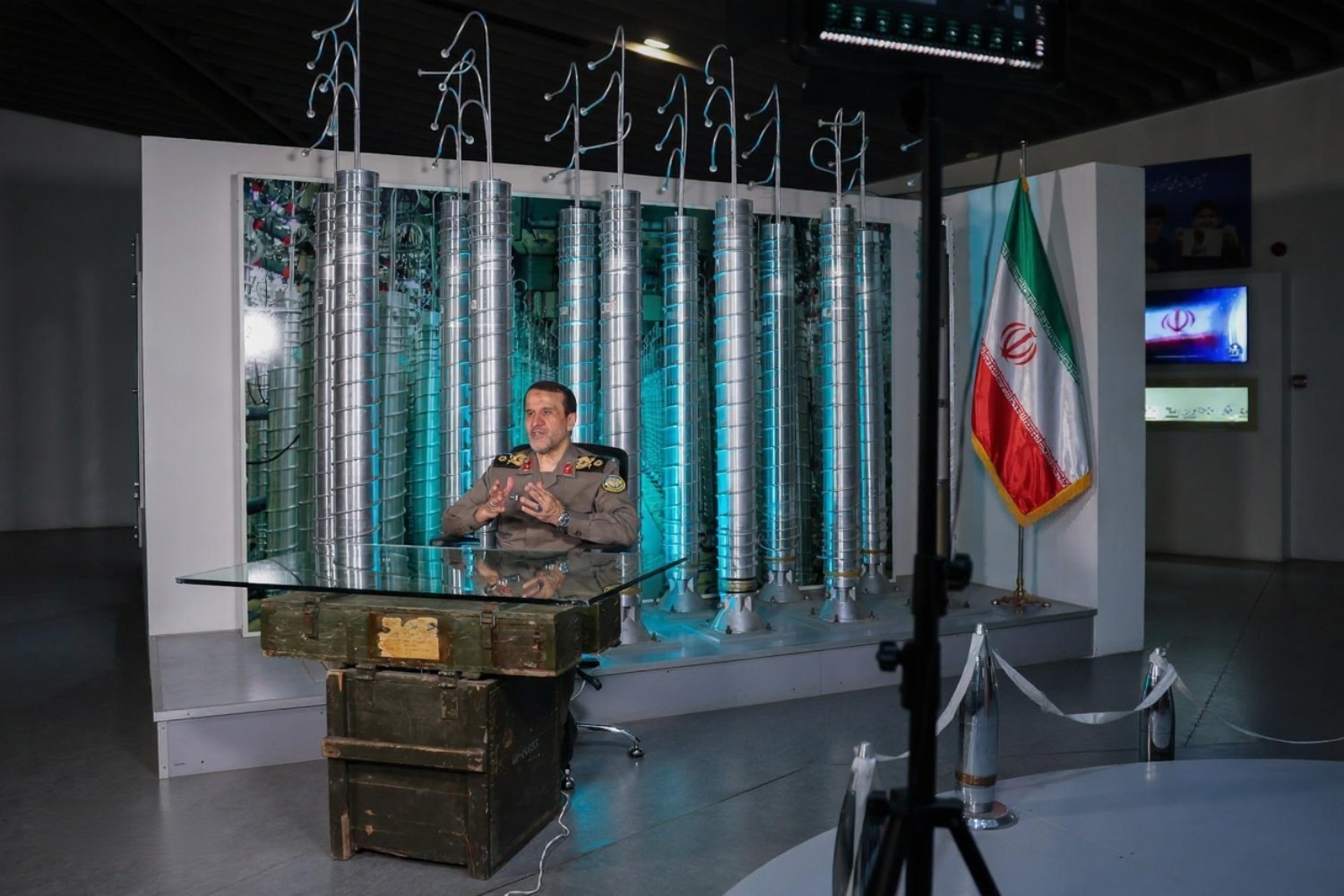
Iran's missile launches towards the occupied territories
He said: "Within 12 to 14 hours of the attack, our missiles were launched towards the occupied territories; this time interval is unprecedented in the world's military operations; of course, the enemies had predicted that it would take between three to five days for Iran to regain its capability and carry out operations, but this period was reduced to 12 to 14 hours. This indicates the preparedness of the armed forces and the strategies of the Supreme Commander-in-Chief."
Brigadier General Kargar emphasized: "Officials from some countries, in meetings with our officials, admitted that Iran's strategy regarding the missile issue and confronting the Zionist and American regimes was correct. In these 12 days, as the Supreme Leader of the Islamic Revolution said: 'The Zionist regime was truly crushed.'"
The head of the Foundation for the Preservation and Publication of Sacred Defense and Resistance Works and Values, stating that the extent of damage caused by Iran's missiles in the occupied territories was very high, said: "The Zionists themselves admit that it will take four years to rebuild the destroyed areas, and the reconstruction of some parts, like the 'Weizmann' laboratory, will take a decade or more. A number of the regime's scientists and military pilots were also killed in this war."
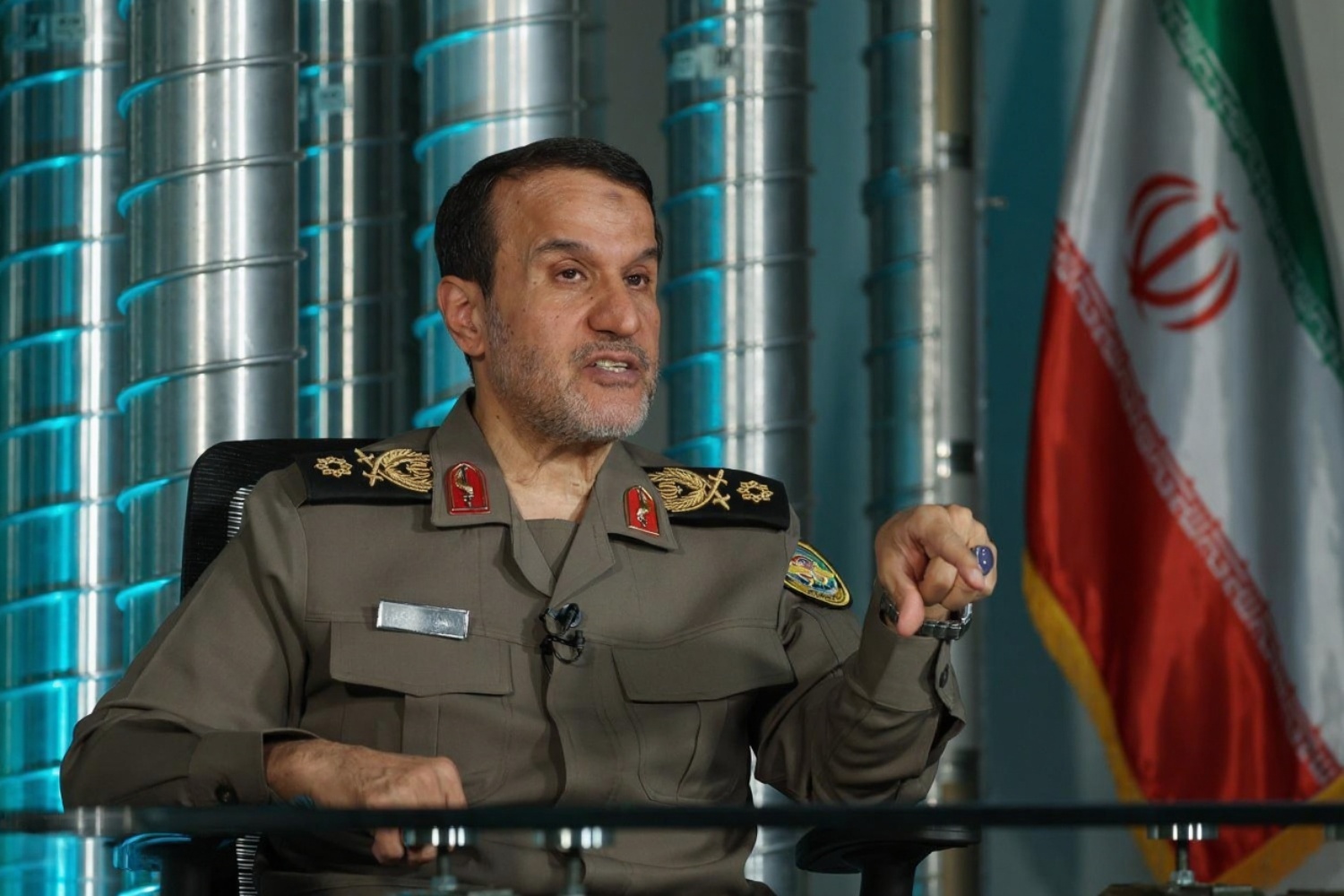
In the 12-day war, Iran fought alone against the Zionist regime and America
Brigadier General Kargar emphasized that the Islamic Republic of Iran did not ask for help from any country, even its friends like Hezbollah and Yemen's Ansarullah, during the 12-day imposed war, and noted: "Islamic Iran fought alone against the Zionist regime and America in this war and was successful, because the enemy requested a ceasefire."
He said: "In the 12-day imposed war, we were not only fighting the Zionist regime, but we were at war with the entire front of arrogance. The Zionist regime was the representative of this front, and they gave everything they had to the Zionist regime."
The head of the Foundation for the Preservation and Publication of Sacred Defense and Resistance Works and Values, pointing out that Americans, British, French, and even some countries in the region were helping the Zionist regime, noted: "This war was not only with the Zionist regime. As the Supreme Leader said: 'This was a war, not a conflict.'"
Brigadier General Kargar emphasized that in a conflict, you cannot change a system, but the Zionists fought us to finish off the Islamic Republic system, saying: "The enemy, according to its own statements, had planned and practiced for 10 years; this was a military, cultural, economic, media, cognitive, and psychological war."
The head of the Foundation for the Preservation and Publication of Sacred Defense and Resistance Works and Values described the 12-day imposed war as a comprehensive war and stated, "In this war, the entire world of arrogance came to the aid of the Zionist regime. This was not a simple conflict, because if it were just a conflict, why did they carry out assassinations? Those who failed to carry out the operation and were defeated now say they did not intend to do such a thing, while the truth is otherwise. The 12-day war was comprehensive; the enemy, in cases where it failed to assassinate the leaders and officials, claimed that it did not want to, but when we look at their attack on the Supreme National Security Council meeting, it is clear that they failed to assassinate all the system's leaders. In this council, the heads of the branches of government, military leaders, and some key ministers are present; in fact, this council is where the essence of the system gathers, but the enemy failed to successfully assassinate its members."
He said: "The main goal of the enemy was the overthrow of the Islamic Republic system; just as the Sacred Defense was not merely a conflict over the Arvand River, and Saddam was also a representative of global arrogance to eliminate the Islamic Revolution; the same goal was pursued in the 12-day imposed war."
Brigadier General Kargar added: "The enemy had predicted what events would occur, and even hostile groups, counter-revolutionaries, Komala, Democrats, MEK, and monarchists had missions assigned regarding where to enter and which areas to control."
He said: "They had even promised Reza Pahlavi that if they were victorious, a limited government would be placed at his disposal. These plans were not for one or two days; they had conducted military exercises and worked for years."
Brigadier General Kargar, stating that the 12-day war was a true and real war, emphasized: "In this war, America also entered with its full capacity. The enemies brought everything they had to the field; they struck with drones, attacked with aircraft, and targeted our main cities and important locations."
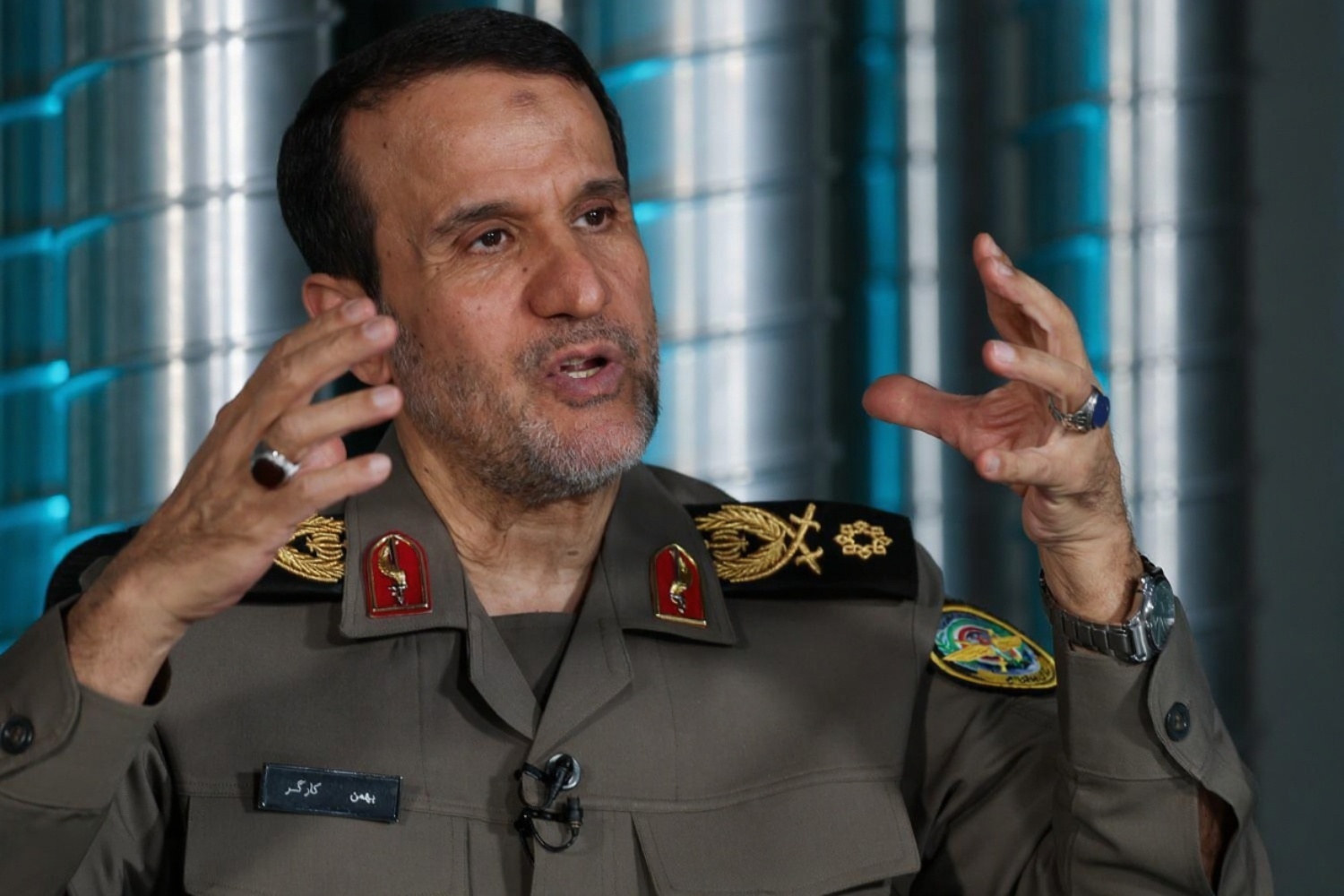
The Islamic Republic of Iran knew that the Zionist regime intended to attack
The head of the Foundation for the Preservation and Publication of Sacred Defense and Resistance Works and Values emphasized: "The Islamic Republic of Iran knew that the Zionist regime intended to attack; therefore, the armed forces were on full alert, and even the commanders knew that the attack would take place tonight or in the morning."
Brigadier General Kargar continued: "However, the type of operation was different; a direct attack on the homes of the country's high-ranking officials is an unprecedented action in the world. This meant the start of a comprehensive war. In the very first hours, the enemy's plan was executed, and the Islamic Republic of Iran responded with timely reactions and decisions."
He said: "Iran's action was important for the world. All media outlets reported that our military leaders and scientists had been assassinated. This event created a great shock for our people. But, through the strategies of the Supreme Leader, the armed forces immediately regained their capability, new commanders were appointed, and military actions began."
The head of the Foundation for the Preservation and Publication of Sacred Defense and Resistance Works and Values, stating that an extraordinary solidarity was formed across the country during the 12-day imposed war, emphasized: "The command structure had predicted that in case of communication disruption, subsequent commanders would assume duties. More importantly, the communication between the Supreme Leader and the people, not only was not cut off but became stronger."
He said: "The country's officials immediately established communication with the provinces and subordinates. The country was alive, and our solid system showed that it does not collapse even under difficult conditions. The leadership, the government, the armed forces, and the people each stood their ground."
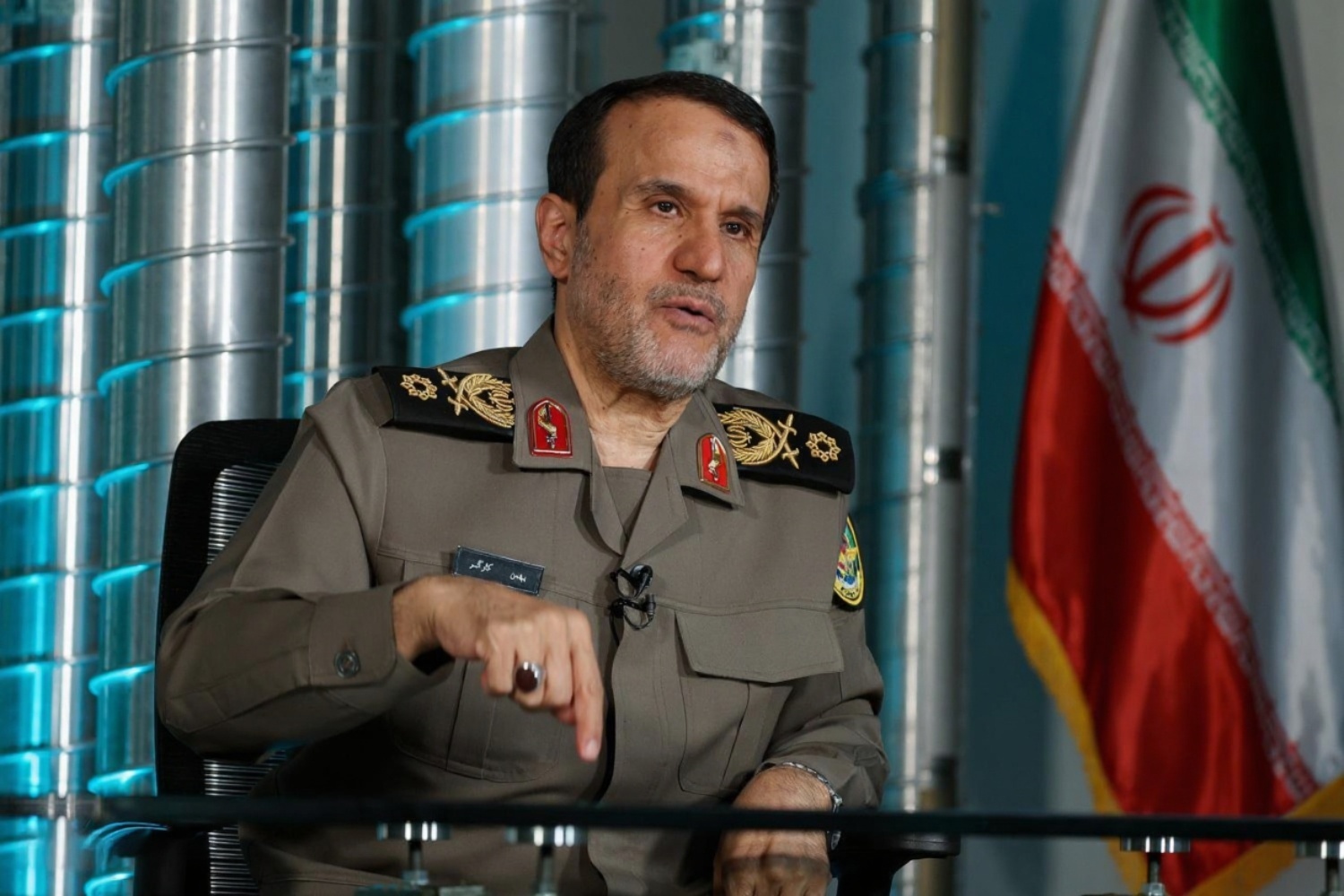
The role of Imam Khamenei's command in the 12-day war
Brigadier General Kargar said: "Since 1989, when Imam Khamenei was appointed as the Leader, he has averted about five or six war situations from Iran, but all his actions, strategies, commands, and leadership on one side, and his leadership in this 12-day war against arrogance and the Zionist regime on the other side... The role of Imam Khamenei in this war was extraordinary."
He emphasized: "The Iranian nation realized that the existence of the Supreme Leader of the Islamic Revolution is a unique blessing. Even many of those who were at odds with the system and the Islamic Revolution have today become his followers. This is evident even outside the country. The decisions of the leadership caused us, and not merely because I am currently Brigadier General Kargar and from the armed forces, but beyond that, in my position as a Muslim Iranian, to acknowledge this truth more than ever: the role of Imam Khamenei is unparalleled."
The head of the Foundation for the Preservation and Publication of Sacred Defense and Resistance Works and Values continued: "To understand the importance of the leadership position, it is enough to review the role of the Supreme Leader; Imam Khamenei, like a wise captain, has preserved this turbulent ship in a stormy ocean. However, what happened in this 12-day war was something beyond; these 12 days had a special manifestation."
He said: "I dare say, among the people, both in universities and in society, various spectrums were influenced by his very first speeches, and all acknowledged the uniqueness of the Supreme Leader.
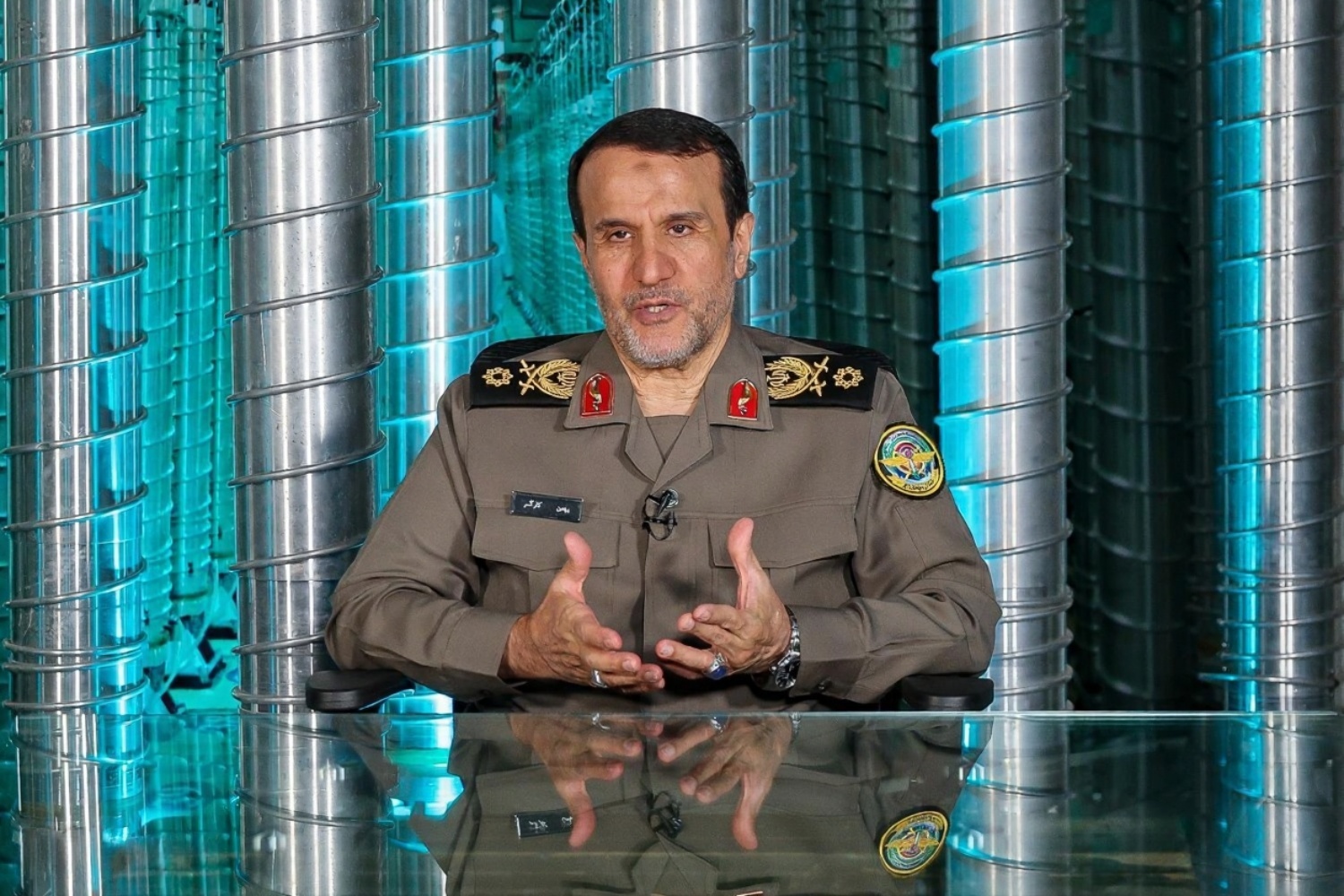
New commanders continue the path of the martyrs with authority
Brigadier General Kargar went on to refer to the capability of the commanders who replaced the martyred commanders and said: "The new commanders follow the path of these very martyrs, and if the enemy makes another mistake, it will receive harder punches. The punishment of the enemy in the 12-day imposed war was minimal; by the power of God, the maximum punishment remains in force."
The head of the Foundation for the Preservation and Publication of Sacred Defense and Resistance Works and Values emphasized: "The people should rest assured, Major General Mousavi, the Chief of the General Staff of the Armed Forces, will continue Martyr Bagheri's path with all his strength, with the additional experience gained from the 12-day war."
He added: "Major General Abdollahi, in the Central Headquarters of Khatam al-Anbiya (PBUH), also continues Martyr Rashid's path very firmly and steadfastly."
The head of the Foundation for the Preservation and Publication of Sacred Defense and Resistance Works and Values emphasized: "Major General Pakpour, the Commander-in-Chief of the IRGC, with his experience from the Axis of Resistance and the Sacred Defense, is firmly at his post and will deliver harder punches to the Zionist regime; also, General Mousavi, the Commander of the IRGC Aerospace Force, continues Martyr Major General Hajizadeh's path with authority. Major General Hatami, the Commander of the Army, is also very prepared, and if the enemy makes a mistake, it will definitely receive a harder punch."
The head of the Central Headquarters of the country's Rahian Noor said: "In the 12-day war, it was unexpected for the world and for us that the Zionist regime would attack residential areas; this regime martyred 30 others while assassinating a nuclear scientist."
Emphasizing that if we keep faith, unity, and hope alive under the leadership of His Eminence [the Leader], we will be victorious, he said: "War involves hitting and being hit; what matters is who emerges victorious? We will perform our duty; if we remain, we are victorious, and if we are martyred, we have performed our duty."
Brigadier General Kargar, in conclusion, stated that the world acknowledges that Iran was victorious in the 12-day war, emphasized: "We hope the Zionist regime has learned a lesson from the recent war and refrains from mischief. If it errs again, the conditions for this regime will be harder than before."
